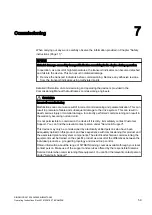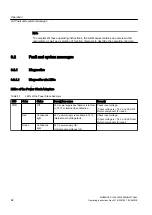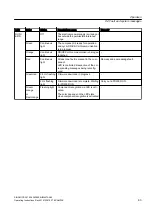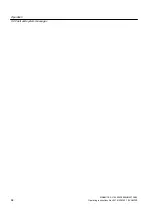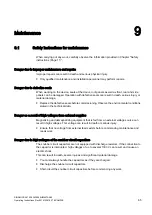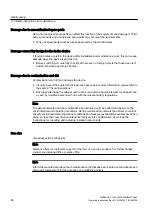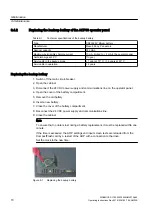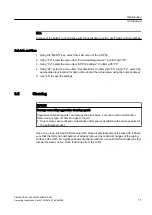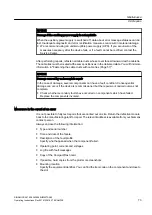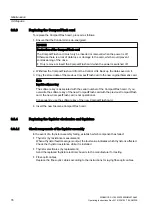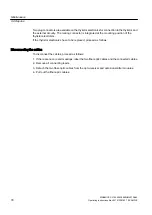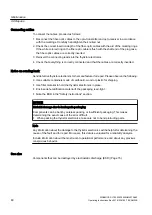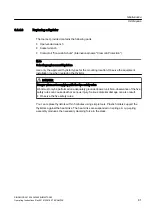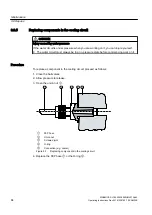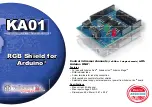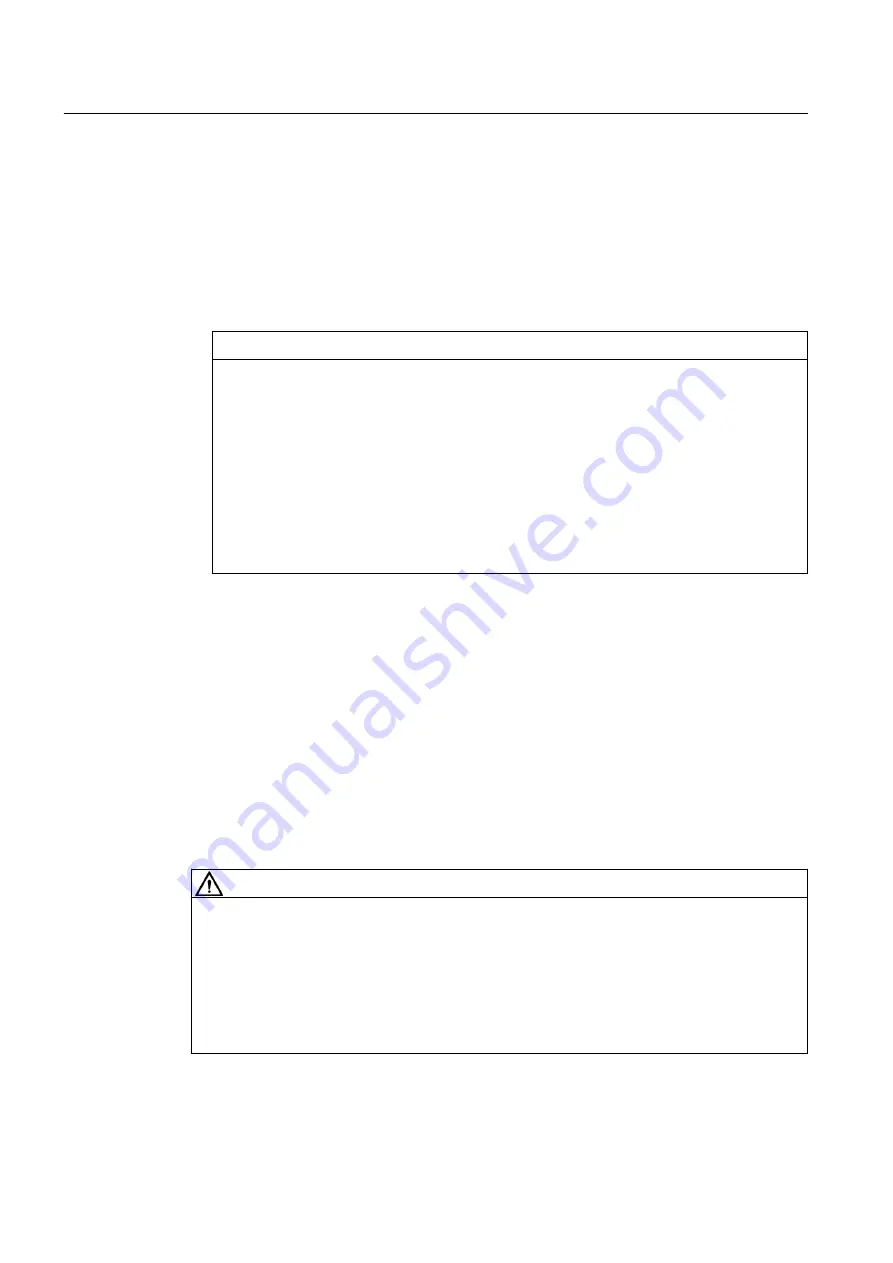
9.5.1
Cleaning aluminum parts
The surface of untreated aluminum is always covered by a thin but dense oxide skin. This
natural oxide layer acts as surface protection and is the reason for the good weathering
resistance of aluminum materials. In most cases, this means that additional protective
measures are superfluous.
● Remove greasy layers using ethyl alcohol.
● If there are other very dirty areas, use ESD-compliant fiber or plastic brushes for cleaning.
NOTICE
Damage caused by unsuitable cleaning agents and cleaning utensils
Using unsuitable cleaning chemical agents and cleaning instruments may transfer
metallic, corrosion-inducing impurities onto the aluminum. This can result in corrosion
damage.
● Only use cleaning agents that are suitable for aluminum.
● Use ESD-compliant brushes and cloths.
● Do not use cleaning cloths and brushes that have been treated with copper, brass,
bronze or other heavy metals.
● Use neither brass, bronze, or steel-wire brushes nor cloths or steel wool interwoven
with copper wire.
9.5.2
Cleaning the cooling unit filter
You can only clean the filter in front of the intake to the converter when the cooling unit has been
switched off.
You can clean the filter at the output of the ion filter when the cooling unit is switched on. Make
sure that you close the valves to the ion exchanger.
9.6
Repairs
WARNING
Burns caused by inadequate cable insulation
Improperly laid or damaged cables and incorrectly attached cable shieldings can heat up in
places and cause fires or short-circuits wherever they make contact.
● Check whether all the cable shields are intact.
● Insulate damaged cable shields.
● Make sure that a short-circuit cannot occur on the power cables due to failure of the
insulation as a result of incorrect cable installation.
Maintenance
9.6 Repairs
SINAMICS SL150 6SL38655UM427AA02
72
Operating Instructions Rev.201910281507 EXAMPLE


